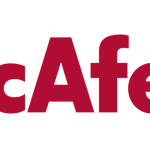- Branche: Software
- Number of terms: 9143
- Number of blossaries: 1
- Company Profile:
A hacking technique of breaking into a system and finding an undetected place from which to monitor the system, store information, or re-enter the system at a later time.
Industry:Internet
The type of files that are used to determine anti-virus or anti-spyware program code to find malware. . DAT files are also known as detection definition files and signature.
Industry:Internet
A hardware location for passing data in and out of a computing device. Personal computers have various types of ports, including internal ports for connecting disk drives, monitors, and keyboards, as well as external ports (such as USB ports) for connecting modems, printers, mice, and other peripherals. In TCP/IP and UDP networks, a port is also an endpoint to a logical connection. Port numbers identify types of ports. For example, both TCP and UDP use port 80 to transport HTTP data. A threat might attempt to enter using a particular TCP/IP port.
Industry:Internet
Code or software that is transferred from a host to a client or to another host to be executed at the destination. A worm is one example of malicious mobile code.
Industry:Internet
A condition in an operating system or application that sends more data input than the operating system or application can handle. Supplying overly long data results in a buffer overflow and corrupts memory.
Industry:Internet
Defacement occurs when there is a change made to the home page or other key pages of a website by an unauthorized individual or process.
Industry:Internet
This process uses a secure socket layer (SSL) to authenticate and encrypt data through a certificate that is digitally signed by the certificate authority.
Industry:Internet
A disk that contains special, hidden startup files and other programs to run a computer, usually specific to the operating system and version. Several types of boot disks are available to an average user, including a standard floppy boot disk, an emergency boot disk, and a bootable CD. Since most anti-virus programs work best when they can gain complete access to the hard drive, it is important to use a boot disk when disinfecting a computer. In some cases, failure to use a boot disk prevents your anti-virus programs from detecting and removing certain viruses from the computer.
Industry:Internet
Installs malware or potentially unwanted programs merely by viewing an email or webpage on an improperly patched system.
Industry:Internet
DLLs that use Winsock APIs to insert themselves into the TCP/IP stack. Once in the stack, LSPs can intercept and modify inbound and outbound Internet traffic.
Industry:Internet
